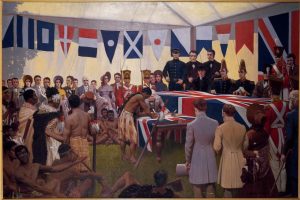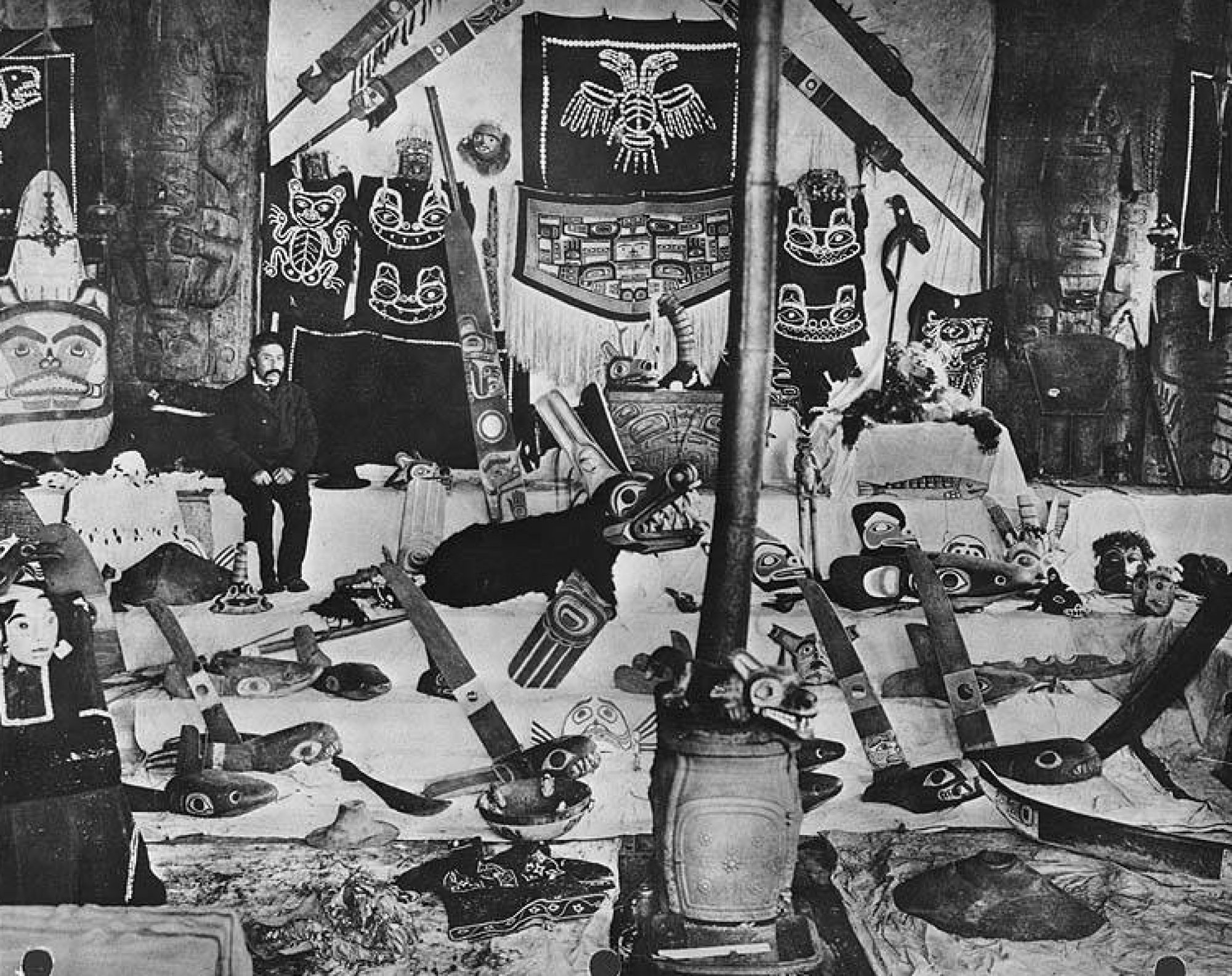Biographical Timeline | Leadership Qualities | Maori Land Ownership | References
The Maori people are indigenous Polynesians currently facing land ownership issues in their home of New Zealand. Between 1250 and 1300 CE, settlers from the Polynesian islands began to make canoe voyages to New Zealand, where they developed into a distinct culture. Europeans arrived In the 17th century. Initially, relations between the Maori and Europeans was amicable, but the Europeans were eager to claim this land for their own. In 1840, after years of negotiations with the indigenous people on the island, the Europeans and Maori leaders signed the Treaty of Waitangi. This treaty established British governance over the island and gave the Maori people the full rights and privileges of British subjects. Most importantly, it guaranteed full ownership of the Maori lands, forests, fisheries and other possessions. The treaty made both parties happy at first, but disputes over the wording of the English and Maori versions of the treaty have lead to problems of land ownership in New Zealand. Since the treaty was established, Maori land has frequently been sold without its peoples discretion. This problem continues today.

In 2004, the New Zealand parliament passed the Foreshore and Seabed Act, which granted the ownership of the intertidal zones all around the island to the government. This zone held plentiful natural resources, such as fish, that the government wanted to sell for extra money. The Maori people, however, had been using those lands since they arrived in the 13th century, so under the treaty, they were rightfully the owners of this land and thus it was illegally claimed by the government.
This act has been protested by the Maori since 2004, and in 2009 the act came under official review and revision. Revisions were put into the Marine and Coastal Area (Takuti Moana) act of 2011. This act made the coastal land public again, and also gave the Maori the right to claim ownership of the land under two conditions. The people had to prove they were holding the land in accordance with their customs, i.e. they were engaged in traditional fishing tactics and generally not abusing the land, and they also had to prove that they have occupied the area from 1840 to now without substantial interruption. Obtaining and presenting this proof to the government was and still is difficult, and thus many people have lost the lands their families have lived on for many generations, despite the fact that the treaty of 1840 granted them full rights.
If Ely S. Parker were alive today and serving the New Zealand government instead of the US, he would have greatly opposed the 2004 FAS act and would have upheld the Treaty of Waitangi. He would have endeavored to make sure that no Maori people would have their land illegally claimed and sold away.
Parker valued fairness above everything else, and at all times in his life sought to uphold the law of the United States. He saw ratified treaties as the final word on disputes, regardless of the contents of the treaty. When Native Americans or white politicians attempted to change treaties, Parker followed the Supreme Court decision of Fellows vs Blacksmith, which stated that a treaty, once ratified, had to be followed whether the Native Americans had knowingly assented or not. In the case of the FAS act, Parker would maintain that the treaty had to be followed, whether whites liked it or not.
Parker was also a pragmatist. He valued the continuation of Native peoples and communities, but he was flexible about methods. He would be eager to support the diversification of Maori incomes, so they were not reliant on fish. As he provided Native tribes with farm equipment and training, he would seek to provide the Maori with resources that would allow them to leave the shore behind. Currently, the Maori use the intertidal zones for fishing, gathering seaweed, travel, and burial grounds. They have a long cultural connection to the land. Parker did not spend much time worrying about cultural heritage. In his early career, he supported land allotments and removal of Native Americans in an effort to compromise. Later in life, he regretted his strong stances on both matters, realizing that many Native Americans had stronger connections to their land than he did. Depending on when in time he was asked about the FAS act, his views on it would evolve.
No matter Parker’s views on the nuances of FAS, he would still uphold the Treaty of Waitangi. He followed the law at all times, carefully overseeing his position as Commissioner of Indian Affairs and taking great pains to keep everything in order. He would never have allowed his own government department to cheat indigenous people out of their land.
